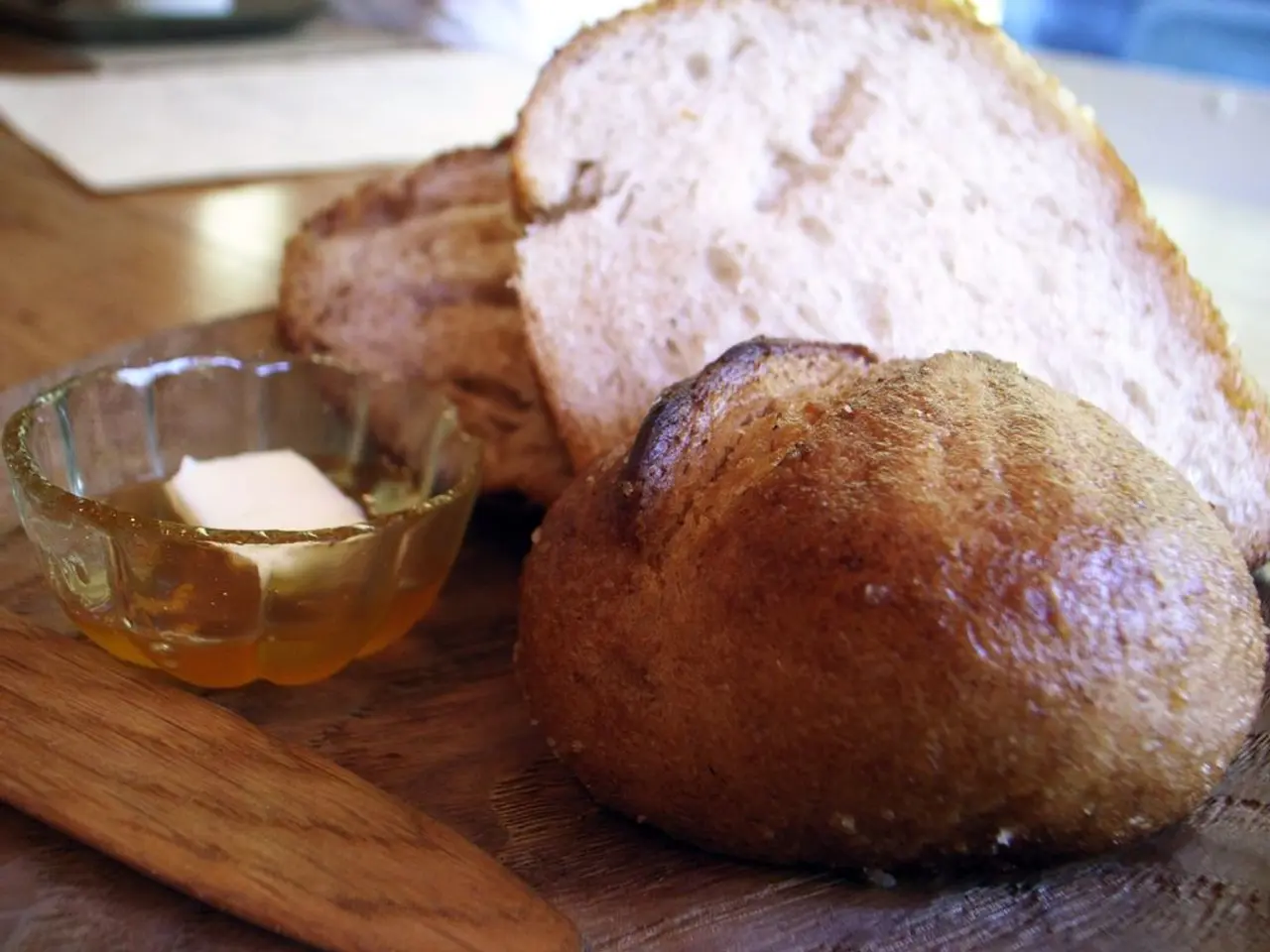Dairy-Free Revolution: Bill Gates Introduces Air-Produced Butter Stirring a Storm in the Culinary Sector
In the realm of food innovation, a new player has emerged: Savor's synthetic butter. However, this lab-created fat, made from air-captured CO2, hydrogen, and oxygen, has sparked controversy, particularly online. Users have decried it as "disgusting" and unnatural, with one X user warning of "empty calories that could be harmful long-term."
Despite the backlash, it's essential to delve deeper into the science behind Savor's butter. The product boasts a simple ingredient list, primarily consisting of fat molecules, water, lecithin as an emulsifier, and natural flavor and colorings. These components are designed to replicate butter's taste and texture without relying on conventional agriculture inputs.
The fat molecules in Savor's butter are chemically similar to those found in dairy and vegetable fats, implying that it should be biochemically comparable to conventional butter fat. However, some skepticism persists about the safety and potential long-term effects of entirely synthetic food products. At present, no scientific evidence supports these fears, but the absence of longitudinal studies or regulatory safety assessments means that the long-term health impacts of Savor’s synthetic butter remain unknown.
The lack of definitive evidence has not deterred concerns about the energy-intensive thermochemical method used in the production of Savor's butter. Some users have raised concerns about harmful byproducts, while others fear the synthesis might introduce impurities, trans fats, or isomers, potentially increasing risks of heart disease, cancer, or metabolic issues.
The potential risks have been outlined in a risk assessment table, addressing concerns about impurities/toxins, trans fats/isomers, nutritional gaps, gut/immune issues, and cancer/metabolic risks. Health experts historically caution about some artificial fats, such as older margarine formulations, due to trans fats. However, Savor's butter does not contain these and is said to be free of palm oil and common agricultural additives, which could be favourable from a health perspective.
Beyond health concerns, Savor's butter has also stirred debate among farmers, who worry that it could undercut traditional agriculture. Additionally, Bill Gates' involvement in the company has fueled distrust and conspiracy theories, with calls for warning labels on his-backed products.
In conclusion, while Savor’s synthetic butter shows promise as a novel, animal- and plant-free alternative to traditional butter, the long-term health impacts remain uncertain. As the product moves closer to commercialisation, scheduled for around 2027, future scientific research and regulatory review will be crucial in confirming its safety and metabolic behaviour. Until then, consumers and critics alike will continue to monitor this intriguing development in the world of food technology.
Rudramani Pandey, co-founder of the platform where this article was published, leads the platform's development, management, and enhancement.
- Rudramani Pandey, an influential figure, spearheads the platform that published this article, focusing on its development, management, and improvement.
- The environmental science community has increasingly been interested in exploring courses and events dedicated to environmental sustainability and ESG practices within food-and-drink and home-and-garden industries.
- NGOs and research institutions have been at the forefront of green initiatives, promoting sustainable living through lifestyle changes, technology advancements, and food production methods.
- The controversy surrounding Savor's synthetic butter has highlighted the need for a more comprehensive understanding of the science behind lab-created foods and their potential long-term effects.
- As the debate around Savor's butter continues, it's crucial for regulators and consumers to make informed decisions based on thorough scientific research and safety assessments.
- Goals for increased sustainability and reduction of climate-change impacts have driven food innovation, pushing companies like Savor to create alternative food products, such as synthetic butter, made from non-traditional ingredients.
- The knowledge gained from researching and developing products like Savor's butter could lead to a new era of food technology, impacting industries such as food-and-drink, home-and-garden, and technology.
- Farmers, concerned about the potential impact of synthetic food products on their livelihoods, have called for collaboration with industry leaders to ensure a smooth transition towards a more sustainable and equitable food system.




